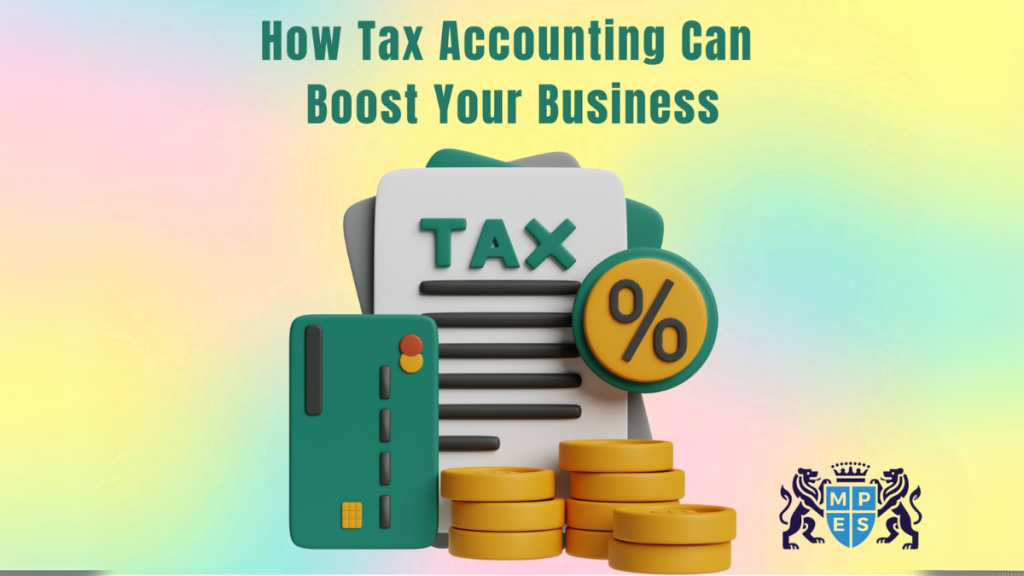Running a business requires handling many different tasks, from managing staff to ensuring your product or service stands out in the market. However, tax accounting is one key area that can propel your company forward or send it down a dangerous slope. It is one of those behind-the-scenes processes that can significantly impact your bottom line.
Tax accounting is not just about submitting tax returns. It is also a great tool for staying compliant, cutting costs, and projecting future growth chances. For those aiming for higher financial acumen, an ACCA Strategic Professional qualification can offer deep insights into managing complex tax strategies. Let us explore how Tax Accounting can help your company thrive in the present business environment.
Understanding Tax Accounting
Fundamentally, tax accounting is the management of your company’s financial operations to guarantee tax law compliance and minimum tax payment. Accuracy, strategy, and using credits and deductions available to companies all count here.
Strong tax accounting techniques satisfy legal requirements and enable your company to expand. A well-crafted tax strategy can also allow you to reinvest those savings into other areas, including marketing or broadening your product line.
Many companies, particularly small and medium-sized firms, ignore the possibilities of tax accounting and fail to maximise the reliefs and incentives presented to them. For example, many business owners are unaware of the Research & Development Tax Credit or capital allowances that may greatly reduce taxable revenue. Good tax accounting can identify these possibilities so you can fully benefit from them.
How Tax Accounting Can Help You Save Money
Firstly, tax accounting can help you save money and strengthen your company. An expert tax accountant can spot several credits and deductions that might not be immediately clear-cut.
In the UK, for instance, companies are entitled to tax relief on a broad spectrum of expenses, including:
- Equipment purchases
- Business travel
- Employee expenses
- Interest on business loans
A good tax accountant will minimise your taxable income by ensuring you are claiming all the deductions you are entitled to, lowering the tax your company pays.
Apart from these deductions, businesses can deduct the whole cost of eligible capital expenditures, such as machinery or equipment, from their earnings using the Annual Investment Allowance.
Tax Accounting and Compliance
Tax compliance is another crucial component of company expansion, and this is where tax accounting shines. Businesses must follow several tax laws, including VAT, PAYE, and corporate tax. Ignoring rules could lead to large fines, interest, and maybe legal problems that can endanger the company’s reputation.
Keeping up with the most recent tax rules will help your company avoid fines and guarantee that you are never caught out by unannounced legislative changes. A tax accountant will check if your records are always current, tax filings are accurate, and you are paying the correct amount.
The good news is that good tax accounting keeps you compliant and helps you make forward plans so that new tax laws never surprise your company. This forward-looking attitude can enable you to keep under control even in difficult economic circumstances.
Optimising Your Tax Strategy for Maximum Benefit
Strategic planning is the true power of tax accounting. Reacting to the tax legislation is insufficient. You must act proactively to maximise your tax plan for the best advantage.
For instance, businesses can lower their whole tax load by:
- Postponing income to the following fiscal year to escape increased tax rates.
- Using pension contribution tax relief to lower overall taxable income.
- Incorporate tax-efficient structures like a limited company or an Employee Benefit Trust (EBT).
A competent tax accountant guarantees that your company is always in the best position to grow economically by helping you create a plan that maximises these chances. With the correct approach, tax planning is one of the best strategies to guarantee long-term company development.
Conclusion
Tax accounting is ultimately more than a yearly task. It is a continuous approach that will help your company develop financially and remain stable. Saving money, guaranteeing compliance, and streamlining your tax plan will help your company be viable in the long term. With MPES Learning, you can deepen your understanding of this concept and take your company to the next level!




